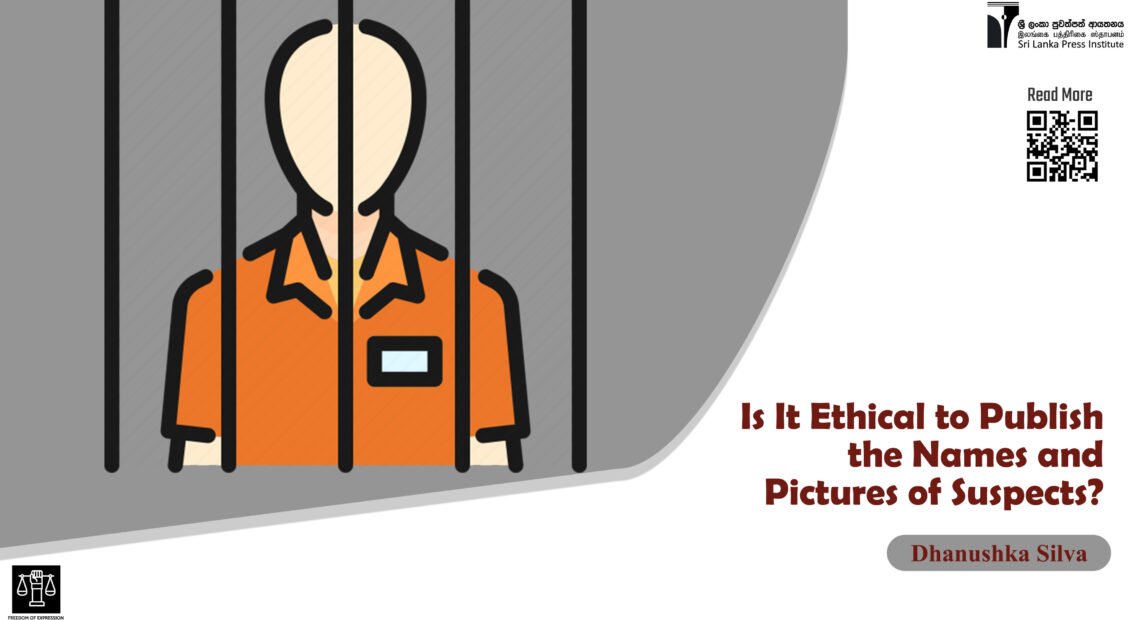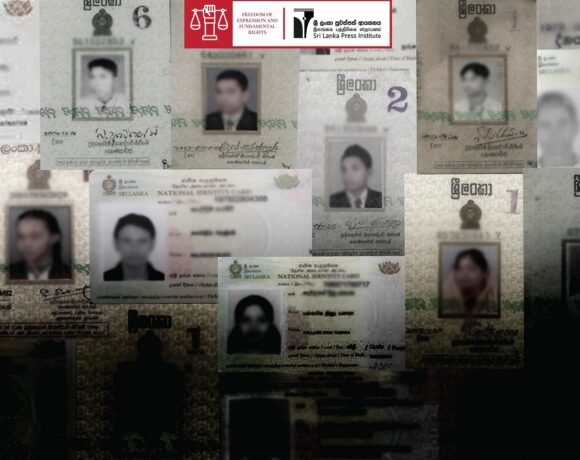
Is It Ethical toPublish the Names and Pictures of Suspects?
Dhanushka Silva
There had been an attack taken place in the city of Christchurch in New Zealand on 15th of March 2019 aiming Muslim community. 51 Islam devotees were killed by the attack inside mosques. Later, BrantonTarront had been identified as the killer. It has been revealed that he was a person who hated Muslim communities and followed white people blindly. In last August he wassubjected to a life time imprisonment. BrantonTarront had introduced himself as a liberator of white people. Moreover, he has been identified as the first person who was subjected to a life time imprisonment in New Zealand. Christchurch attack has been an unbelievable incident to New Zealand as it had been continuing as a well disciplined democratic country over the last century. Therefore it became a shocking experience to the whole country.
The killer was arrested by the police within few hours after the attack. New Zealand media as well as other international media gave a full coverage to the incident of arresting the killer. At the final judgement the judge mentioned to him as “your deed was inhuman. You are a person without empathy”.The New Zealand media had not revealed the pictures, identity or any personal information of the killer to any media until he was proven guilty at the courts. New Zealand media believed that it might affect the court case if they published such sensitive information prior to the judgement. The authorities in New Zealand media strictly believed that his intimates will be embarrassed and fallen into trouble in front of the society by revealing the identity of the killer. New Zealand media authority did not show any tendency of following the killer with cameras to record his identity and privacy. They also did not try to present the sorrowful stories of the intimates of the killer through their media channels. The maturity shown by the New Zealand media authorities at this incident is a clear example of how democracy and media should combine together with social responsibility.
The minister of citizen security in the prevailing Sri Lankan government, SarathWeerasekarahas stated to the media on 1st December 2020 as “the identities ofthe people who are arrested as suspectsfor crimes, child abuse and rape cases are being revealed to the society to inform the community about them. The criminals should be severely punished and the society should be informed about them. The society should be knowledgeable about the amount of crimes, criminals and the nature of crimes happening around them. Thecitizens can prevent from being a victim of such a crime when they are aware of the nature of crimes that are happening in the society.” The words of Mr. SarathWeerasekaracan be agreed but what about revealing the personal information of the arrested person to the society even before they are decided as guilty?
The first aspect that should be understood is that the action of arresting a person as a suspect does not mean that he is a criminal. Sri Lanka police holds the prime duty and responsibility of investigating any crime. Usually a number of suspects are being arrested during investigations. Suspects are not always criminals. The whole responsibility to decide whether any suspect is a criminal or not is up to the court. Identifyinga suspect as a criminal is a complex process which is done after finding required evidences.
“Until someone is claimed as a criminal by the court, he is not guilty”. This is a basic theory in criminal law. But what can be the result of revealing all the personal information of the suspect as approved by the minister SarathWeerasekara? Its unpleasant results are as follows;
- As mentioned above, investigating crimes is a duty of the police. Deciding whether a person is a criminal or not is a duty of the courts. They are two different complex technical processes. Through revealing the personal information of the suspect, the media authority takes over the duty of investigating crimes and deciding whether a person is guilty.
- There is a complex political role which cannot be understood by media. Therefore, a media authority can directly make any suspect a criminal based on their political ideologies. Some suspects can be omitted from this procedure.
- One of the basic theories of guilt-free approach in criminal law is affected by socializing the information of suspects. There is a tendency of suspects identified as criminals off the process in courts.
- By socializing the identity of the suspects, innocent people who are not criminals are labelled as criminals in front of the society. Once media published a person called “Kondaya” as the criminal of murdering Seya Sadewmi. Later, the police investigations revealed that he was not the actual criminal of the incident.
- Innocent suspects are both mentally and socially depressed by such actions of media.
- When media has published a suspect as a criminal, the citizens absorb it. If he is not decided as the actual suspect by the court process, the trust of citizens about media fails. Citizens might get doubts about the court’s judgement.
- Crime investigation process and granting justice are disturbed by such actions of media.
Therefore, even though the minister SarathWeerasekara states that revealing the identities of suspects to the society before they are decided as criminals is alright, it creates several severe problems that brings many bad results. The expectation of the minister might be reducing the number of crimes that are happening in the society. But, exposing the suspects to the society to reduce the number of crimes is not being done in any of the disciplined country. Securing the identity of the suspect until he becomes a criminal through a judgement of a court is the accepted procedure of the world.
It is important to identify the organized crime networks and conduct proper investigation to suppress the crime rate of the country. The authorities can be empowered with modern technology to make the procedure easy. This can be identified as the current necessity in the country. Otherwise, revealing the identity ofsuspects does no good to any society.








